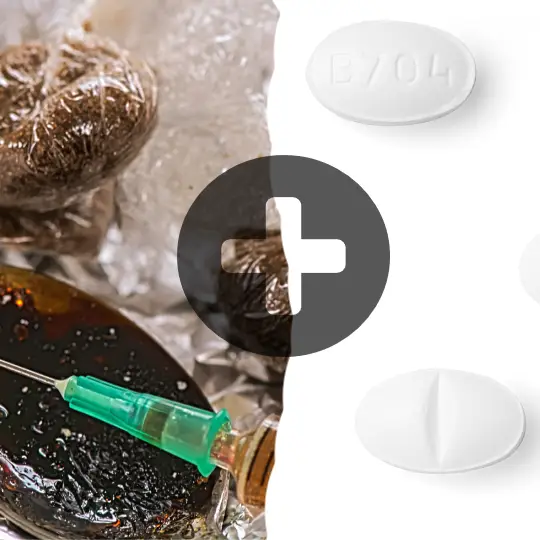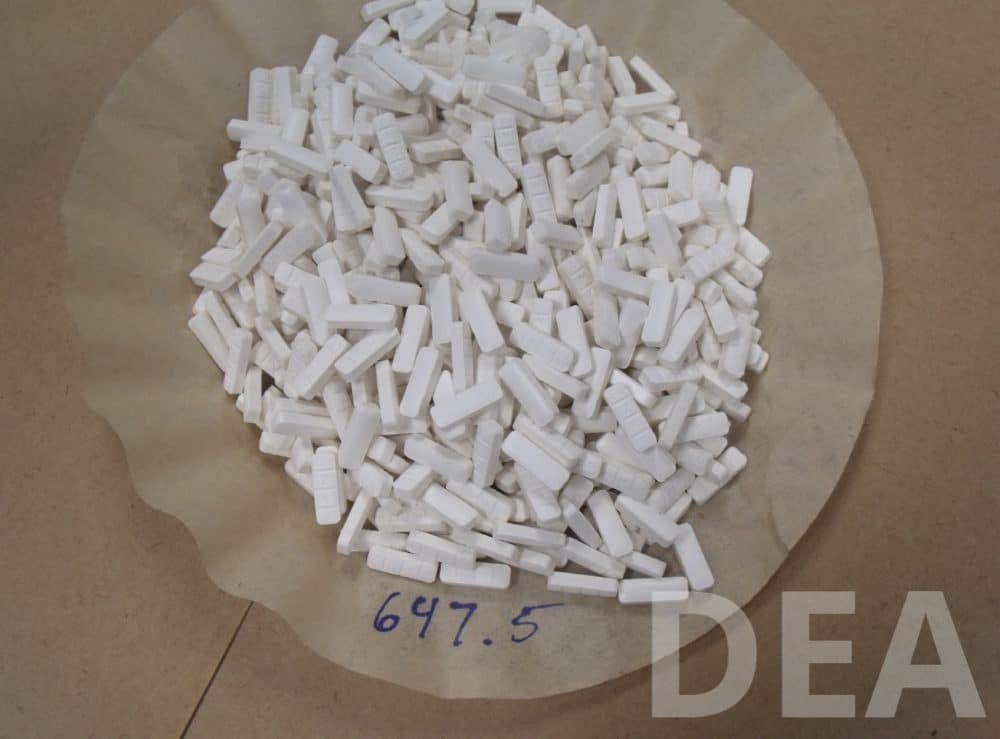Fentanyl is a synthetic opioid that has been used for pain management since the 1960s and was recognized as a law enforcement and health issue in the early 21st century, becoming a problem at scale by 2013. By 2016, fentanyl had become the most common cause of overdose in the United States — and that same year, it claimed its first high-profile victim, the singer Prince.1 What makes fentanyl particularly dangerous is that it is often sold as counterfeit heroin and OxyContin, yet it is over fifty times more potent — and a hundred times more powerful than morphine.2
Understanding Fentanyl Overdose
The effects of fentanyl are extremely unpredictable when it is mixed with other drugs. Over 85% of fentanyl overdoses occur when users combine the drug with other substances. Every year the DEA reports new such permutations.3 For example, 2020 saw the appearance of pills containing fentanyl and xylazine, a horse-tranquilizer used as a recreational drug.
In 2020, 108,000 Americans died from a fentanyl overdose — a number that has risen since the onset of the COVID-19 pandemic.4 And yet, even those fortunate enough to receive help for overdoses in time often succumb. About one in twenty of those who get emergency room treatment for an overdose die within a year, often of another.5
Fentanyl Overdose Symptoms
A fentanyl overdose happens when the body is overwhelmed by a toxic level of the substance; only a tiny amount is necessary.
The following are the ‘classic’ signs of fentanyl overdose:6
- Loss of consciousness. This symptom occurs because of the drug’s impact on the heart rate or breathing. One of the most dangerous fentanyl overdose symptoms is loss of consciousness. When fentanyl concentrates in the brain, it can cause a person to fall asleep and stop breathing. This can happen quickly, and if not treated immediately, it can lead to brain damage and death. Loss of consciousness is a medical emergency that requires immediate treatment.
- Slow, weak, or no breathing caused by opioid-induced respiratory depression. Respiratory depression is a condition in which the rate of breathing is slow and shallow. This can be caused by fentanyl overdose, as fentanyl slows down the body’s respiratory system. In some cases, respiratory depression can lead to death.
- Small or constricted ‘pinpoint’ pupils. A fentanyl overdose can also cause pinpoint pupils, which are very small pupils that do not react to light. If you see someone with pinpoint pupils, it is important to get medical help immediately. Pinpoint pupils can be a life-threatening condition, but with prompt medical treatment, patients can make a full recovery.
- Cold, clammy, or discolored skin. Fentanyl overdoses can cause these symptoms by decreasing the amount of oxygen in the body and interfering with the body’s ability to regulate temperature. This can cause the body to cool down too much, leading to chills and goosebumps. The reduced blood flow can also cause the skin to take on a blue or gray hue. In severe cases, this can lead to death.
- Dizziness and mental confusion. When fentanyl is abused, it can cause dizziness and mental confusion. These side effects are caused by fentanyl’s ability to slow down the respiratory system. When a person breathes in fentanyl, it rapidly enters the bloodstream and binds to the body’s opioid receptors. This binding action slows down the respiratory system, leading to dizziness and mental confusion.
- Choking, snoring, or gurgling sounds. A fentanyl overdose can cause a person to make choking, gurgling, and snoring sounds as they struggle to breathe. If you witness someone exhibiting these symptoms, call 911 immediately and administer naloxone if possible. Naloxone is a medication that can reverse the effects of an opioid overdose.
- ‘Wooden chest syndrome.’ Fentanyl users may risk developing wooden chest syndrome, which can cause serious and life-threatening complications. The syndrome is typically caused by fentanyl overdose, which occurs when the fentanyl interacts with the body’s natural opiate receptors. This interaction can lead to an abnormal heart rate, impaired breathing, and decreased blood pressure. In some cases, fentanyl users have also reported feeling as if their chests were made of wood.7
The good news is detoxing the body and receiving addiction treatment after a fentanyl overdose can help lessen the likelihood of relapse.
Seeking Help After A Fentanyl Overdose
A fentanyl overdose can be treated with a few different methods. The most common is the administration of naloxone, which can reverse the effects of an overdose and help the person breathe again. Naloxone is usually given through a shot or a nasal spray, and it can be administered by paramedics, doctors, or even family members and friends. In some cases, multiple doses of naloxone may be necessary. Other treatments for a fentanyl overdose may include giving the person oxygen to help them breathe, or providing intravenous fluids to prevent dehydration. The goal of treatment is to stabilize the person’s breathing and heart rate until the fentanyl wears off. With prompt medical treatment, most people who overdose on fentanyl will make a full recovery.
The Importance Of Medical Detox After Fentanyl Overdose
Fentanyl stays in the system for a long time, and the effects can linger for days or weeks. That’s why medical detox is so important after a fentanyl overdose. Medical detox can help to flush the fentanyl out of your system and reduce the risk of long-term damage. It can also help to ease withdrawal symptoms and make the recovery process more comfortable.
Professional help is especially important given that fentanyl detox can be both arduous and frightening — it’s known as a particularly hard drug to detox from, with symptoms that include:8
- Abdominal cramps
- Anxiety
- Diarrhea
- Excessive sweating
- Goosebumps
- Insomnia
- Muscle aches and spasms
- Nausea and vomiting
- Runny nose
Bottom line: fentanyl is one of the most dangerous drugs in the country today, and suspected overdoses should be handled with maximum care and an eye toward getting long-term treatment.
Detox and Say Goodbye To Fentanyl For Good
If you or someone you know struggles with a fentanyl addiction, know there is hope. Our medical detox program can provide the support you need to get through withdrawal and start on the road to recovery. Contact us today if you’re ready to say goodbye to fentanyl and reclaim your life.
Sources
- https://www.pharmaceutical-technology.com/analysis/fentanyl-go-wrong/
- https://www.cdc.gov/stopoverdose/fentanyl/index.html
- https://en.wikipedia.org/wiki/Fentanyl
- https://www.cdc.gov/nchs/pressroom/nchs_press_releases/2021/20211117.htm
- https://www.health.state.mn.us/communities/opioids/prevention/followup.html
- https://spectrumnews1.com/wi/milwaukee/news/2022/04/22/how-to-help—and-stay-safe—in-the-case-of-a-fentanyl-overdose
- https://www.ncbi.nlm.nih.gov/pmc/articles/PMC8312149/
- https://www.santecenter.com/rehab-blog/signs-and-symptoms-of-fentanyl-overdose/



 Steve Carleton
Steve Carleton 